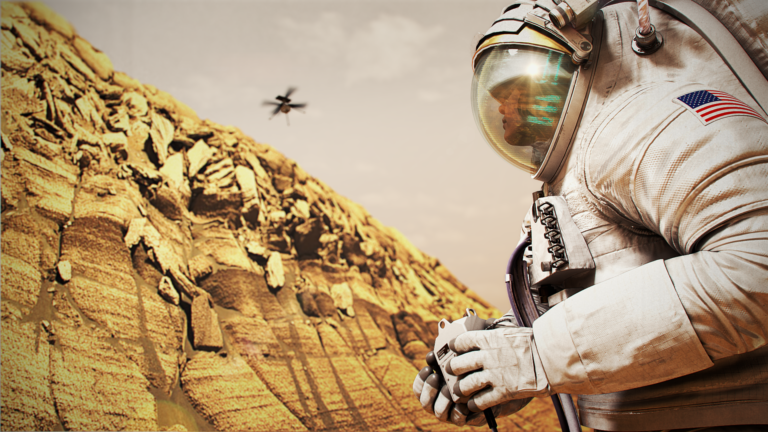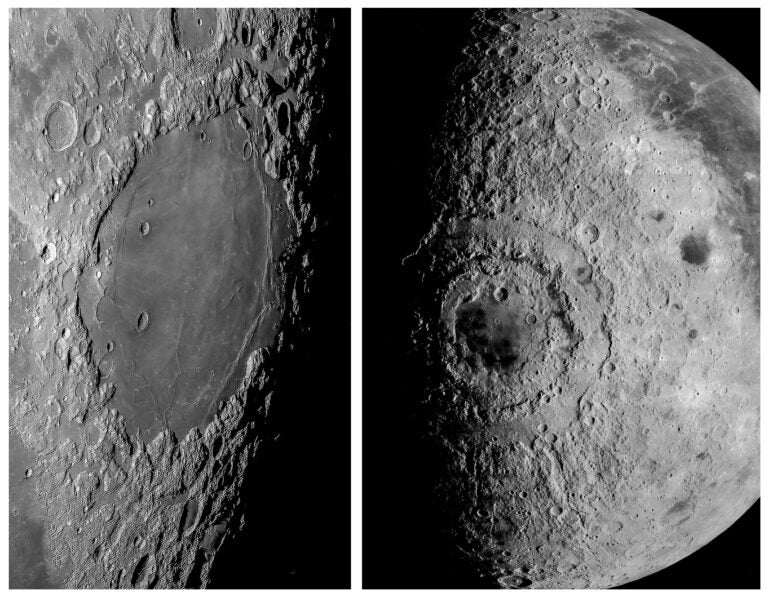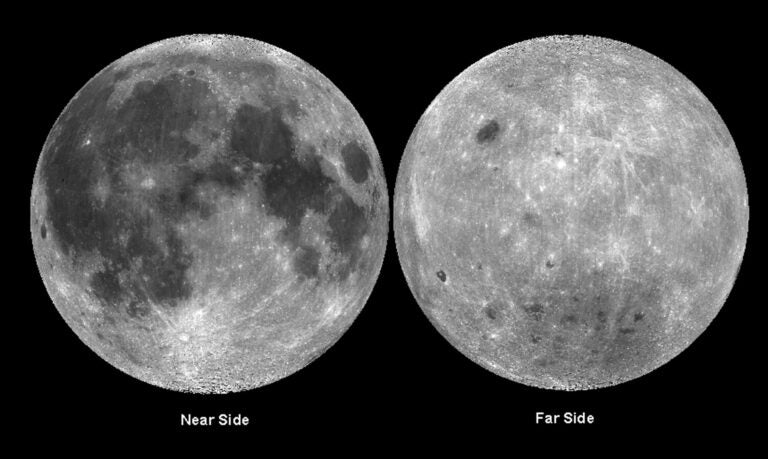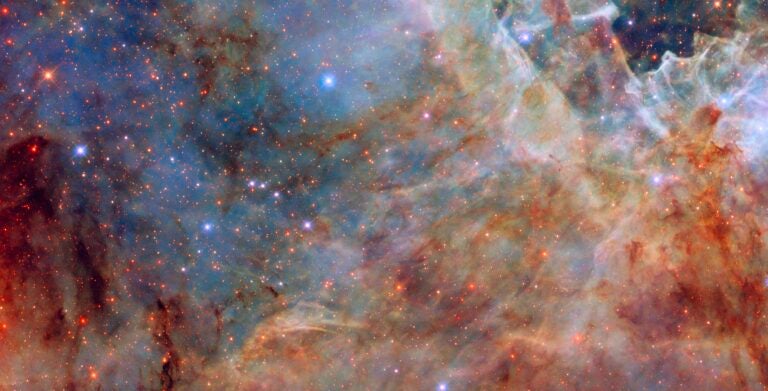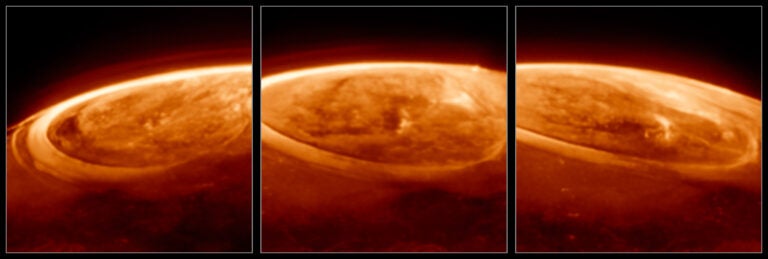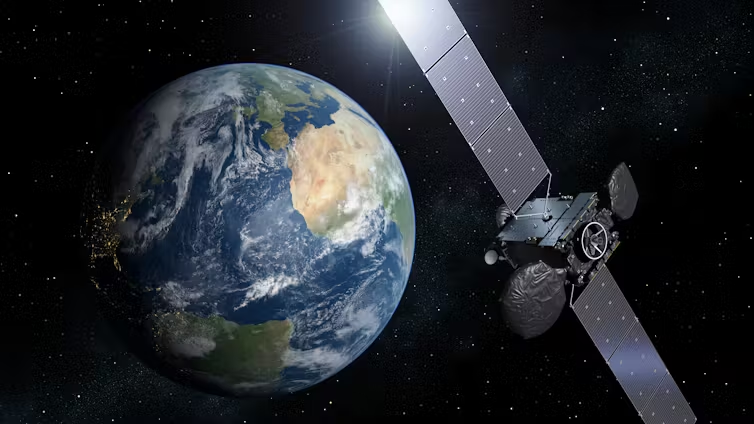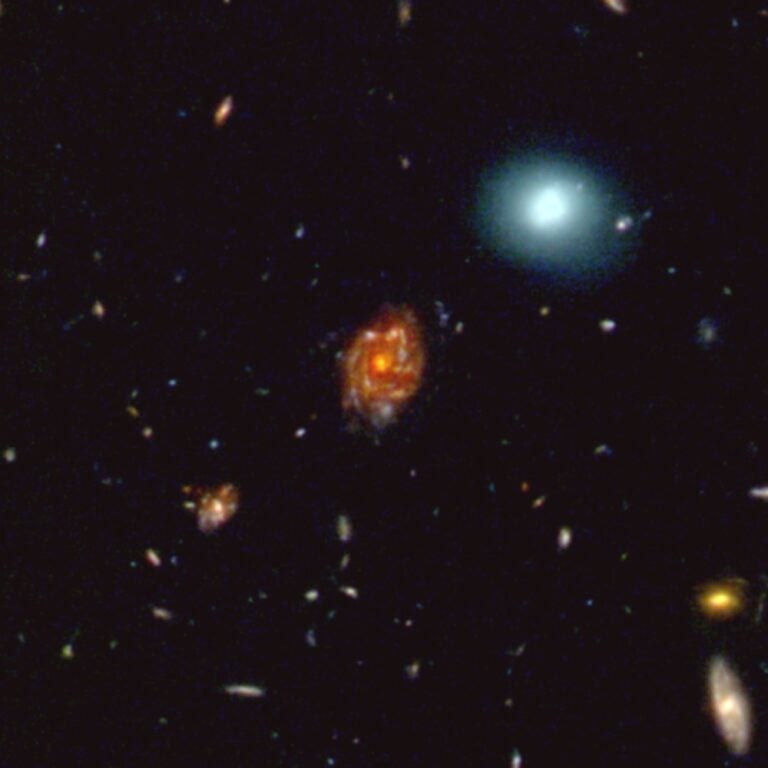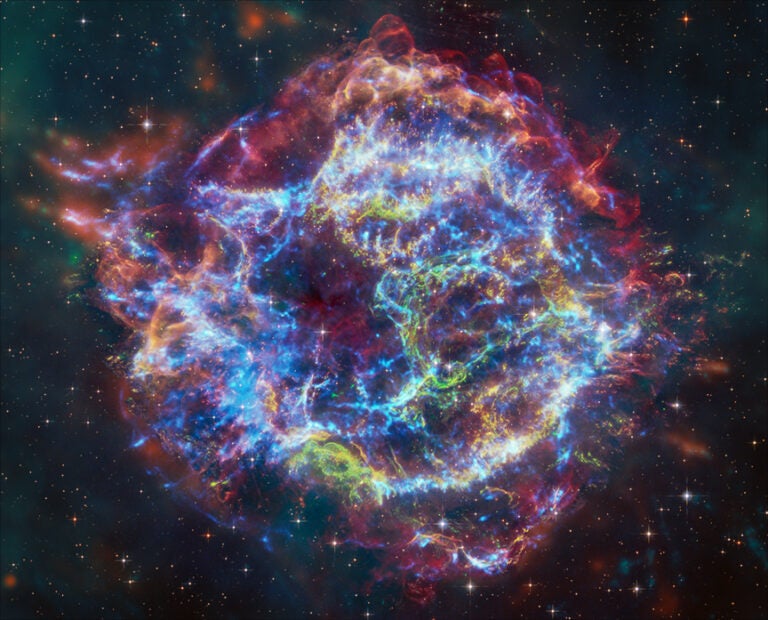
For the past 40 years, I’ve driven to a radio studio in Albany, New York, to answer on-air astronomy questions. For an hour each month, the eight stations of the WAMC Northeast Public Radio Network broadcast this in five states.
After so many years, I’ve noticed common themes — and questions — pop up. One trend that’s emerged is that a lot of folks don’t trust our government. The recent Netflix movie Don’t Look Up, which depicted the feds impounding astronomers’ orbit calculations and calling it “classified information,” plays into this paranoia. If a world-destroying comet was en route, many think the government would keep it a secret.
The reality? If a new comet or asteroid was about to create an extinction-level event, the discoverers would first quickly share it with other observatories to confirm everything. Experienced astronomers have favorite journalists and media outlets, and by the end of
the first day, word of the danger would have reached the entire world. The government would have no chance of keeping it under wraps.
Last year, several callers asked about articles from 2020 saying that astronomers had found exoplanets with better conditions for life than Earth. This may have been history’s most unsupportable supposition. First off, our planet teems with life. We can’t even catalog all the species here; they’re too numerous. No place could be more fecund.
More importantly, no current observation could portray any exoplanet as most (or even more) ideal for life. Sure, it might orbit at the right distance from its parent star to allow liquid water. But does it also have a nearby moon that stabilizes its axial tilt to keep conditions friendly over long periods, as we do? Or, on the flipside, might it have lethal surface radiation? Overactive volcanoes? We can’t know such things. Conjectures about “ideal conditions” ignore such critical holes in our data. To reach firm conclusions, we’d need to detect atmospheric gases specifically produced by life.
Those are some common questions. Among the more unique is: “Might a person be contentedly weightless in a cavern at the Earth’s center?” That’s a cool question. But the comfort level 4,000 miles (6,400 kilometers) below your shoes might be degraded by the pressure from the overlying layers. You’d be pressed upon by 55 million pounds per square inch (3,900 metric tons per square centimeter). That’s 3,900,000 bars, or around 4 million times the air pressure you’re currently experiencing.
Another subsurface query: “How hot is it underground?” Here on Earth’s surface, the daily air temperature cycle disappears at a depth of 6 inches (15 cm). Below 30 feet (9 meters), like in large caves, a thermometer would remain unchanging and read the same as your region’s average annual air temperature.
Another caller asked: “At what altitude would time pass at the same rate for an orbiting astronaut as someone on Earth’s surface?” Remember that both higher speed and stronger gravity slow time, so an astronaut on the Moon, experiencing only 1/6 Earth’s gravity and partaking of our satellite’s leisurely 0.6-mile-per-second (1 km/second) orbital speed, would age faster than in his Chicago bedroom. Conversely, an astronaut on the International Space Station zooming at 4.76 miles per second (7.66 km/second) while bathed in 90 percent of Earth’s surface gravity ages more slowly than when she took her SATs on the ground. So, where would gravity and speed combine to exactly match the time-passage at your local mall? Answer: In a space station orbiting 2,000 miles (3,220 km) above Earth’s surface. Lower down, you’d have to move too quickly to stay in orbit.
Another: “Could an astronaut consciously survive a brief helmetless transfer through space from one spacecraft to another, as in 2001: A Space Odyssey?” Yes! (See my February 2018 column to learn why — and how.)
Aren’t we forever nourished by such scientific morsels? Keep the calls coming!

